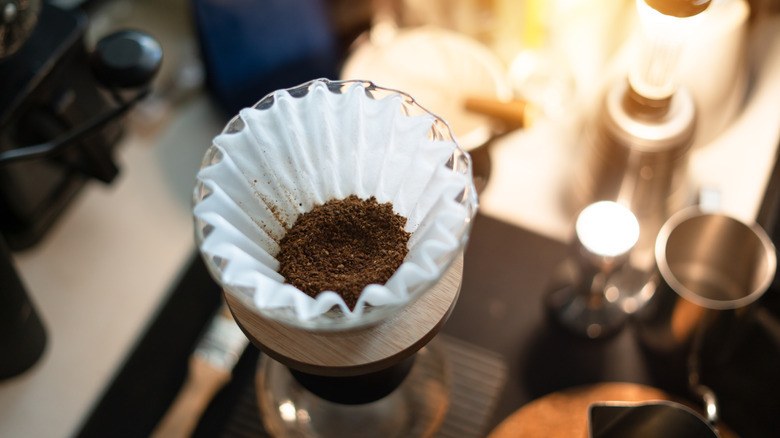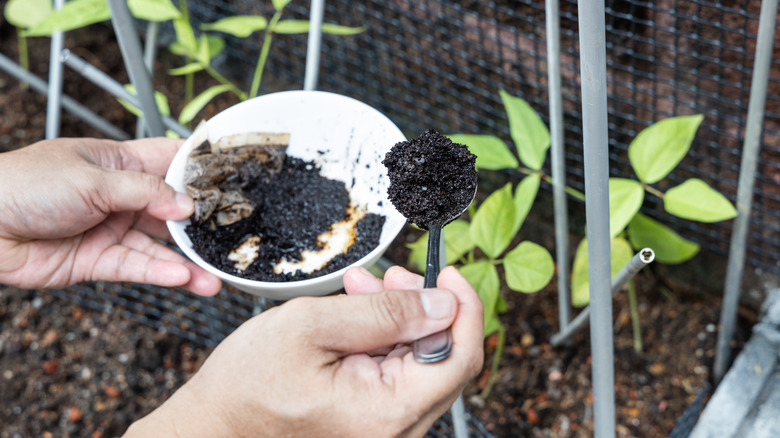Think Twice Before You Reuse Coffee Grounds For A Second Brew
As we get further into the 21st century, prices of food have skyrocketed, including — incredibly — that of coffee. Whether you are buying ground coffee from the grocery store, or splurging a little on whole beans and grinding them at home yourself, you've likely started seeing the price of your favorite products climb. Now some people might take frugality to the extreme where coffee is concerned by getting a second brew out of already-extracted grounds; after all, you can reuse tea bags, so why not your coffee? Food Republic got the expert inside-scoop from Bryan Quoc Le, founder and principal food consultant at Mendocino Food Consulting, and author of the book "150 Food Science Questions Answered." According to the expert, this is not the hack you think it is.
He told us, "In the second brew, there is much less caffeine[,] and the flavor tends towards more bitter as the less soluble polyphenols and tannins are extracted." Most of the caffeine within coffee beans, which is very water soluble, as well as the compounds that give coffee its signature flavor, get extracted during the first run-through in the coffeemaker, which just means less of what makes the beverage worth drinking. Even worse, Le said, "The acidity also rises as more of the caffeic and chlorogenic acids ... start to elute from the brew." What you are left with upon a reuse of your coffee grounds is a rather unpleasant cup of joe.
So what can you do to repurpose coffee grounds?
Just because you shouldn't use your coffee grounds for a second round of brewed coffee, doesn't mean they have to go entirely to waste. In fact, the leftover product can be incredibly useful for other purposes — especially because you want to avoid simply tossing coffee grounds down the garbage disposal. "Composting is always an excellent way to repurpose coffee grounds," said Bryan Quoc Le. "They are very high in nitrogen and potassium, which have major benefits for growing plants." Because each individual coffee particle is so small, it's easy for them to break down in the soil. They also "contain certain mold spores that are highly beneficial for soil health," the expert continued.
You can also use used coffee grounds in self-care applications; the caffeine can help get rid of the dark spots under your eyes or take care of any cellulite that might appear on your body. It can also beautify your home decor – coffee grounds can mask scratches on dark wooden furniture, be used to clean your ashy fireplace, or even be used as a natural dye. If you have kids (or are a kid at heart) and want to create an aged piece of paper for a treasure map, for example, used coffee grounds can achieve that look. Coffee grounds are also effective odor neutralizers, so you can leave a bowl of them in your fridge or in a smelly mud room.


